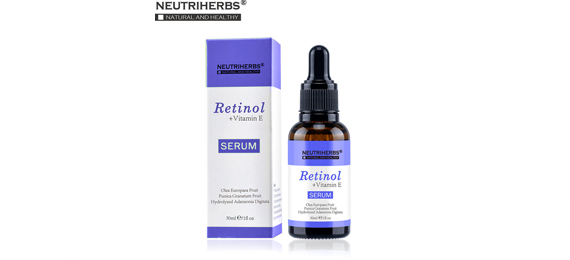
Retinol is a synthetic retinoid, a derivative) of vitamin A. It is naturally produced by your body and aids in boosting cell turnover, reducing wrinkles and lines, and kick-starting collagen production in our body.
According to the research of the Washington Institute of Dermatologic Laser Surgery by Dr. Tina Alster, when retinol is applied topically, it converts to retinoic acid by specialized enzymes found in the skin. Retinoic acid can also be applied topically, but is much harsher than a retinol cream or serum, as it does not convert naturally over time.
Learn How to Use Retinol
Step 1: The first step is to wash your face and apply eye cream. Our eyes have very delicate skin around them and eye cream will help protect the delicate skin.
What Is Retinol in Skincare?
- A. Cream
- B. Lotion
- C. Soap
- D. Oil
Step 2: Then wait for a few minutes until your skin is completely dry, the cream won’t sit well in wet skin and the retinol will be able to absorb more deeply into your skin and might cause irritation and an itchy feeling.
Step 3: The third step is to take a pea-size amount of the retinol cream and, start at your chin, apply with your fingertips in upward and outward motions slowly.
Step 4: After applying the cream gently to your skin, finish with your moisturizer.
Step 5: Finally remember to apply a broad-spectrum sunscreen the morning after, as retinol makes skin more sensitive to the sun.
What Does Retinol Do for Skin?
Retinoids reduce wrinkles and lines from your skin by increasing the production of collagen. The retinol cream also stimulates the production of new blood vessels in the skin, which improves skin complexion. The additional benefits of using retinol include fading of dark and age spots, softening rough patches of skin, and giving soft smooth skin.
Retinol Benefits for Skin
Applying retinol can include the following benefits:
- Applying the cream will brighten the dull skin by exfoliating at a cellular level, which results in new smoother, and brighter skin.
- It also prevents wrinkles due to its minimizing effect, as well as it smooths out existing wrinkles and fine lines.
- Retinol usage fades dark spots, sun spots, and hyperpigmentation.
- It regulates oily skin and minimizes breakouts caused by dryness.